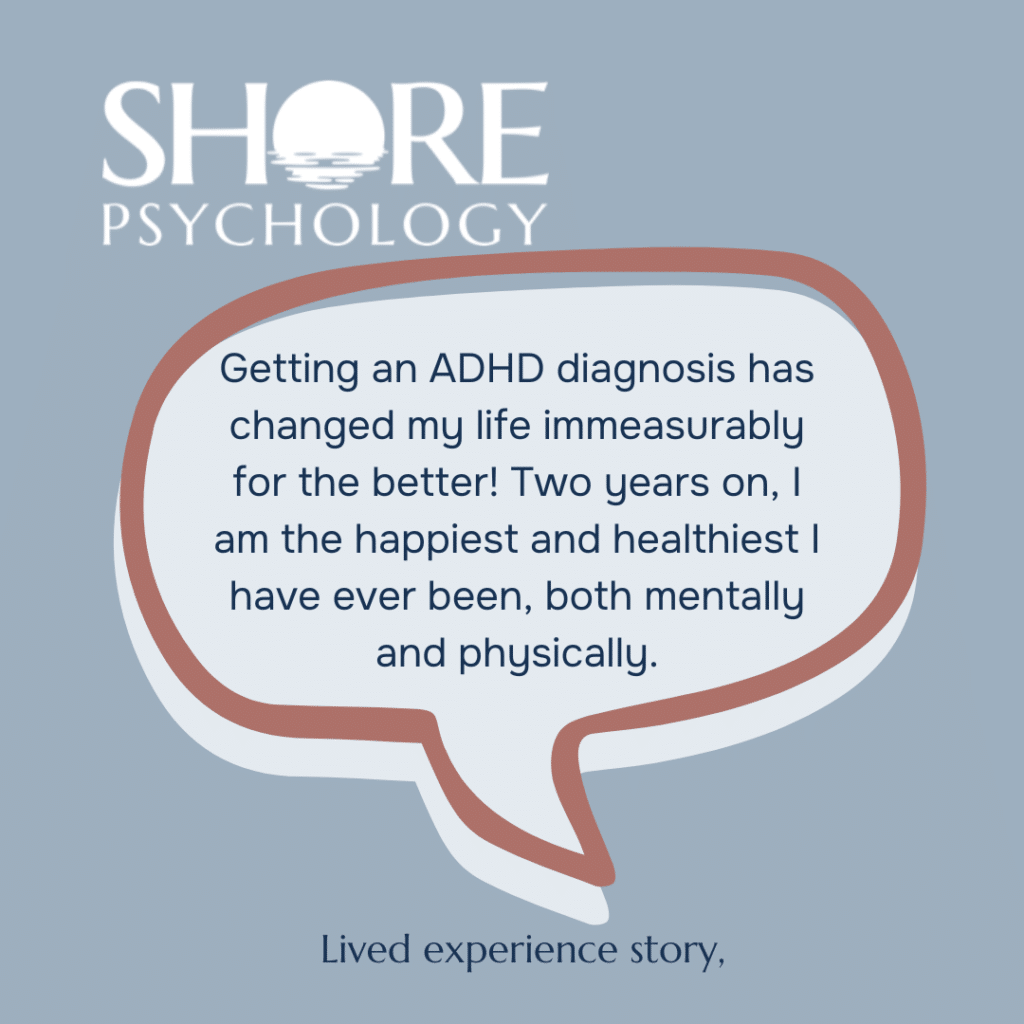Should you get an Adult ADHD Assessment?
Written on: 30 January 2025
Adult ADHD – An overview
In recent years, ADHD (Attention Deficit Hyperactivity Disorder) has moved from being a condition typically associated with children to one that is also more commonly considered in adults. As more people recognise the symptoms in themselves, the question arises: Should I get an ADHD assessment? If you’ve been wondering whether this is something you should consider, you’re certainly not alone.
ADHD isn’t just about being “easily distracted” or “hyperactive”; it’s a complex neurodevelopmental condition that can manifest in a variety of ways. For some, it might mean struggling with organisation or time management, while for others, it could involve issues with focus, impulsivity, or even emotional regulation. However, because many of these behaviours overlap with other common issues, it can be tricky to tell if it is ADHD.

The Signs You Might Want to Look Out For
You’ve probably heard of the most common signs of ADHD: trouble focusing, restlessness, forgetfulness, and impulsivity. But did you know that ADHD in adults can look very different from how it does in children? If you often find yourself overwhelmed by tasks, skipping important steps because you forgot them, or frequently feeling like your brain is “on overdrive,” it could be worth looking into.
Other signs include:
- Difficulties organising yourself – struggling to keep your home or workspace tidy, losing track of important tasks or deadlines, or feeling like you’re constantly running late.
- Difficulty staying focused – even on tasks you enjoy or need to complete. You might find yourself jumping between projects or getting distracted easily.
- Impulsivity – making snap decisions that you later regret or acting before thinking things through.
- Emotional highs and lows – feeling overwhelmed by seemingly small problems or having difficulty managing frustration.
It’s important to remember, though, that everyone can experience these things from time to time. It’s the frequency and intensity of these issues, and the impact they have on your daily life, that can signal ADHD.
Why You Might Consider an ADHD Assessment
If any of the above sound familiar and are affecting your personal or professional life, an ADHD assessment could provide valuable insights. The process typically involves a combination of questionnaires, interviews, and sometimes psychological testing, all aimed at giving a clearer picture of your behaviours, thoughts, and challenges.
Getting an assessment might feel like a big step, but it could lead to a better understanding of why you’ve struggled with certain things in the past. More importantly, it opens up the possibility of targeted strategies, therapies, or even medication that could help you manage your symptoms.
Lived Experience Story
“Getting an ADHD diagnosis has changed my life immeasurably for the better! It is the best thing I could have ever done for my overall health and wellbeing – both mentally and physically.
I sought a diagnosis late in life (I had just turned 40) when my coping mechanisms slowly began to fail, and as a result and I was struggling in every aspect of my life – personally, professionally, emotionally, and my mental health was at its all-time worst.
The validation a diagnosis provided allowed me to finally realise that I was not ‘broken’ – just that my brain worked a little ‘differently’, and with the right mindset shift and the right supports in place, I could truly thrive with ADHD!
Two years on from my diagnosis, I am the happiest and healthiest I have ever been, and I am reaching goals, that two years ago, I would have only been able to dream of achieving ! “
Our Neurodiversity web page provides lots more information on how we can assess and support you or a family member.
 News
News
 News
News
 News
News